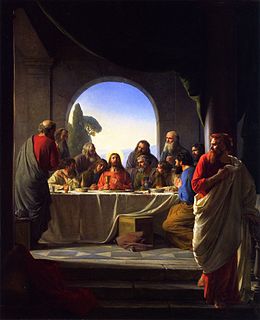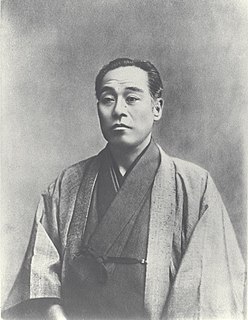A Quote by Sallust
It is not only spirits who punish the evil, the soul brings itself to judgment: and also it is not right for those who endure for ever to attain everything in a short time: and also, there is need of human virtue. If punishment followed instantly upon sin, men would act justly from fear and have no virtue.
Related Quotes
A man that hath no virtue in himself, ever envieth virtue in others. For men's minds, will either feed upon their own good, or upon others' evil; and who wanteth the one, will prey upon the other; and whoso is out of hope, to attain to another's virtue, will seek to come at even hand, by depressing another's fortune.
If a man of good natural disposition acquires Intelligence [as a whole], then he excels in conduct, and the disposition which previously only resembled Virtue, will now be Virtue in the true sense. Hence just as with the faculty of forming opinions [the calculative faculty] there are two qualities, Cleverness and Prudence, so also in the moral part of the soul there are two qualities, natural virtue and true Virtue; and true Virtue cannot exist without Prudence.
By Allah, whenever I endure any adversity I gain four blessings of Allah in exchange. The first of them is, when the adversity is not caused by my sin (virtue is earned). The second, when the adversity is not greater than my sin (virtue is earned). The third, when I am not deprived of contentment (virtue is earned). And the fourth, I hope for virtues thereby.
Human nature itself is evermore an advocate for liberty. There is also in human nature a resentment of injury, and indignation against wrong. A love of truth and a veneration of virtue. These amiable passions, are the "latent spark" . . . If the people are capable of understanding, seeing and feeling the differences between true and false, right and wrong, virtue and vice, to what better principle can the friends of mankind apply than to the sense of this difference?
Many times people ask me, "What is sin and what is virtue? And how to decide?" If you decide your decision will be wrong. If you choose you will be wrong. All choice is wrong. There is no way to decide. There is no need to decide what is sin and what is virtue. You only need a transparent mind, a clarity, a thoughtless mind, a no-mind, a mirror-like consciousness. In that consciousness WHATSOEVER HAPPENS is virtue. In that consciousness WHATSOEVER CANNOT HAPPEN is sin.
According to great masters, there is no sin and there is no virtue. There is only one thing: that is awareness. If you are aware, you can do anything you want and it is not sin. If you are not aware, you may do so-called virtuous acts, but there is no virtue in them. Out of unconsciousness virtue cannot blossom. It blossoms only when you are full of light, full of love, full of consciousness.
It is, indeed, a fact that, in the midst of society and sociability every evil inclination has to place itself under such great restraint, don so many masks, lay itself so often on the procrustean bed of virtue, that one could well speak of a martyrdom of the evil man. In solitude all this falls away. He who is evil is at his most evil in solitude: which is where he is at his best - and thus to the eye of him who sees everywhere only a spectacle also at his most beautiful.
In its broad sense, civilization means not only comfort in daily necessities but also the refining of knowledge and the cultivation of virtue so as to elevate human life to a higher plane... It refers to the attainment of both material well-being and the elevation of the human spirit, [but] since what produces man's well-being and refinement is knowledge and virtue, civilization ultimately means the progress of man's knowledge and virtue.
When we realize a constant enemy of the soul abides within us, what diligence and watchfulness we should have! How woeful is the sloth and negligence then of so many who live blind and asleep to this reality of sin. There is an exceeding efficacy nad power in the indwelling sin of believers, for it constantly inclines itself towards evil. We need to be awake, then, if our hearts would know the ways of God. Our enemy is not only upon us, as it was with Samson, but it is also in us.
Let us have the courage to defy the consensus, the courage to stand for principle. Courage, not compromise, brings the smile of God’s approval. Courage becomes a living and an attractive virtue when it is regarded not only as a willingness to die manfully, but also as a determination to live decently. A moral coward is one who is afraid to do what he thinks is right because others will disapprove or laugh. Remember that all men have their fears, but those who face their fears with dignity have courage as well.







































